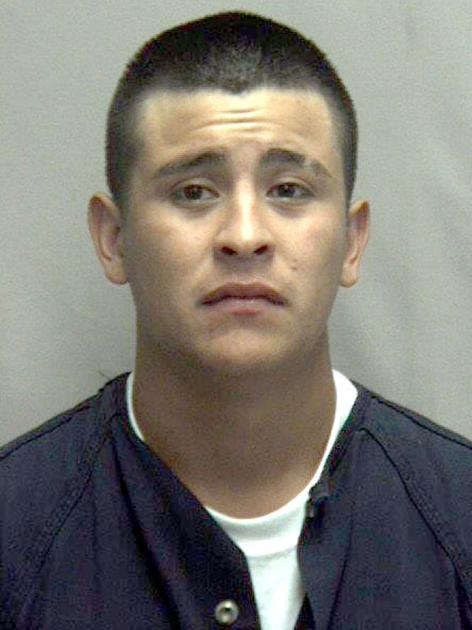
WINCHESTER — Rape suspect Jamie Barba Campirano speaks Spanish but says he doesn't read it well.
Barba's purported lack of reading comprehension was the basis for challenging the admissibility of possible incriminating statements he made to police. He said didn't understand the Miranda warning against self-incrimination in Spanish that he read on a card given to him by police.
The June 16 interrogation occurred at the Frederick County home of Campirano's girlfriend after a 14-year-old girl told police Campirano raped her on June 14. Campirano's DNA didn't match what was on the girl's clothing, according to court documents. But police say after Campirano waived his Miranda right, he admitted to briefly having sex with the girl and knew she was underage.
The purported admission came after Campirano was recorded on the body camera of Deputy Thomas Wyatt of the Frederick County Sheriff's Office reading the card and agreeing to talk. Nonetheless, Campirano, who doesn't speak English, testified on Monday in Frederick County Circuit Court that he didn't understand that what he read was about his right to remain silent and have an attorney represent him. He said he only spoke to police because was nervous.
"I have to read things several times before I understand them. I have to take time to read them," Campirano testified through a translator. "I just read it once, and I didn't understand anything."
On video from Mexico City, the principal at Campirano's elementary school testified that Campirano dropped out of school after the sixth grade. Records from the school introduced by Campirano's attorneys showed he struggled to read. Campirano, who said he dropped out to go to work to support his widowed mother, said he avoided reading aloud at school because he stuttered and his classmates laughed at him.
But Kristen G. Zalenski, an assistant commonwealth's attorney, contended the 22-year-old Campirano was playing dumb. She noted Campirano, convicted in Winchester in November 2020 of leaving the scene of an accident, had been read his Miranda warning in November 2019 by a translator, so he should've understood what was on the card.
"Was the defendant lying on June 16, 2020, or is he lying today in court? It comes down to that," Zalenski told Judge William Warner Eldridge IV. "Just because you are scared and speak a different language doesn't mean you can't knowingly give up your Miranda rights."
Since the 1966 Supreme Court Miranda v. Arizona case mandating suspects be told by police before questioning that they have a right to an attorney and to remain silent, Miranda warnings have become ubiquitous on TV crime shows and movies and are widely known by Americans. But Campirano didn't come to the U.S. until 2019. He said he rarely read until he began reading the Bible and newspapers after being jailed.
Defense attorneys Gerardo M. Delgado and Jason Ransom argued that it was plausible that a slow reader who'd only been read a Miranda warning once by a translator seven months earlier might not understand the card that was handed to him. They pointed to testimony by two Spanish-speaking translators who said Campirano's reading of the warning, captured on the deputy's body camera video, was rushed and often unintelligible.
"It wasn't read properly," translator Manuel Prado testified on Monday. "There were no pauses, no inflections. It was a run-on [sentence]."
Ranson noted that it's natural for people in routine traffic stops to be nervous when questioned by police. In Campirano's case, he was facing questions about a rape.
"Is it really hard to believe you may not be focused on what you're reading?" Ransom asked Eldrige. "You come from Mexico with a sixth-grade education and you're scared of the police. Are you really soaking in what you're reading?"
Eldridge said he was having a difficulty deciding whether to allow or suppress Campirano's statements to police. He noted previous challenges to Spanish Miranda warnings have focused on inaccurate translations. Spanish-language Miranda warnings are issued about 900,000 times annually, according to the American Bar Association. In 2019, the ABA sought a uniform Spanish-language warning from police to ensure accuracy.
Eldridge said he was unable to find any legal precedents about Spanish-language Miranda challenges based on the reading comprehension of the defendant. Eldridge said he wanted to more time to study the case and said he would rule at 10 a.m. Friday. "This is an unusual circumstance and a lot is at stake for both parties," he said.
No comments:
Post a Comment